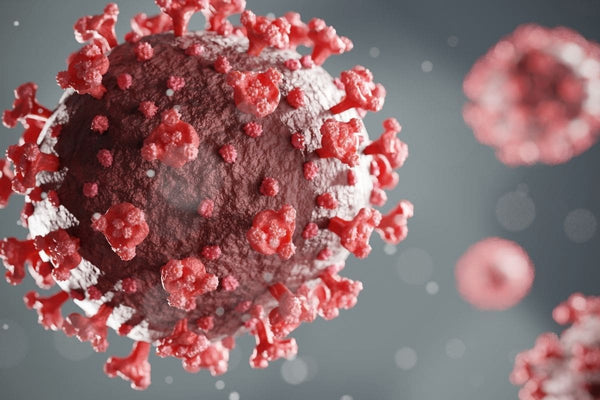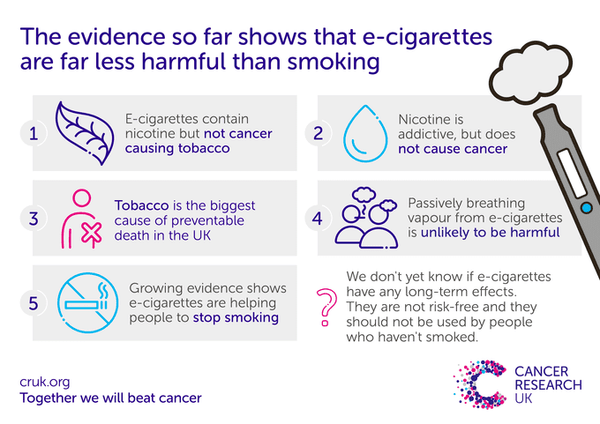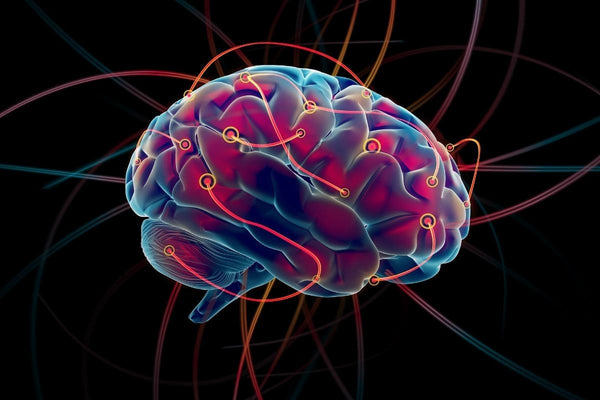The year is 2024 and looking back at the last couple of years, it’s important to recognise the value of maintaining your health. We don’t know what’s around the corner, but by taking responsibility for our own health, we leave more resources for those that really need it.
The way the human body deals with pathogens like Covid-19 is to engage our immune system. This is the internal system that fights foreign invaders, attacking the pathogen and making an inhospitable environment to make it hard for the pathogen to multiply.
Things like our diet and daily activities can impact the effectiveness of our immune system, and one of those activities is smoking. By quitting smoking, you can strengthen your immune system, as well as improve your overall health.
WHAT ARE THE HARMFUL CHEMICALS IN CIGARETTES AND CIGARETTE SMOKE?
We have known for a long time that smoking is harmful to your health; it is well established that cigarette smoke contains over 50 known carcinogens - cancer causing chemicals. These include formaldehyde, arsenic, lead and tobacco specific nitrosamines, to name a few. (1)
Taken in with all these harmful chemicals is another nasty substance - tar. This sticky substance is the residue that remains from burning tobacco and can contain acids, resins, phenols and essential oils. This can paralyse and then kill the little hair-like structures called ‘cilia’ that line the airways of the lungs: these structures help to clear the lungs of dust and debris.
Other chemicals produced from burning of tobacco smoke include reactive oxygen species (2), or ‘ROS’, and reactive nitrogen species, or ‘RNS’. These are compounds that make up a group of chemicals known as ‘free radicals’ - excessive amounts of these cause damage to our cells and even cell DNA because they are highly reactive. Changes to the DNA of cells in the lungs could lead to lung cancer.
Another highly reactive chemical formed by burning tobacco is carbon monoxide. This sticks to the red blood cells in place of oxygen, resulting in less oxygen being delivered around the body.
HOW DOES SMOKING AFFECT THE IMMUNE SYSTEM?
Many of the chemicals found in tobacco smoke suppress the immune system, yet some are causes for inflammation - this is quite the quandary, as the body causes inflammation as part of the immune response.
A study conducted in Copenhagen, published in 2019, investigated the effect of smoking on levels of white and red blood cells, and platelets (thrombocytes). The investigation showed that smoking increased the number of white blood cells, including neutrophils, lymphocytes and monocytes - all of which contribute to our immune response.
High levels of white blood cells are normally signs of emotional or physical stress, or that the body is fighting off infection. That smoking triggers higher levels of these suggests that damage is being done, and increased levels of white blood cells are required to mitigate the damage.
The level of red blood cells also increases with smoking, and this could be due to the limited capacity of red blood cells that have come into contact with carbon monoxide, and therefore cannot carry oxygen. A process called erythropoiesis is triggered, which is the creation of red blood cells, in order to counteract the lower levels of oxygen being delivered to organic tissue.
It appears that smoking keeps the immune system in perpetual stress, triggering increased levels and production of blood cells. This is counterpoint to the effect of nicotine, which has been shown to have immunosuppressive qualities.
WHAT ARE IMMUNOSUPPRESSIVE AGENTS?
In the case of some neurodegenerative disorders, nicotine has been shown to have a protective effect, though it is also toxic in large doses. These dichotomous actions of tobacco smoke triggering the immune response while nicotine may suppress the immune response demonstrates how smoking can throw off the balance of the immune system.
That means that your body is in a constant state of immergency due to cigarettes, so when an actual illness comes along the body doesn't have anything else to throw at it.
WHAT ARE CARCINOGENS?
Carcinogens can change a cell’s DNA, and can cause a fast rate of cell division, which increases the likelihood of a change in the DNA and leads to the growth of tumours. These changes in DNA can also make a cell ‘forget’ how to die properly, avoiding the cell death process called ‘apoptosis’.
Lung disease caused by smoking can also bring about lung cancer. Pulmonary fibrosis is when lung damage has occurred, leaving the lung tissue scarred and stiff. This leads to a shortness of breath, and the damage can’t be undone, though medications and therapies can sometimes help address these symptoms. Pulmonary fibrosis is associated with an increased risk of lung cancer.
Another condition caused by smoking that is a known risk factor for lung cancer is chronic obstructive pulmonary disease, or COPD. This can be due to inflammation that obstructs the airways of the lungs, and damage to the air sacs - known as emphysema.
WHAT IS THE EFFECT OF CIGARETTES ON THE BRAIN?
As previously mentioned, nicotine has been shown to have a neuroprotective effect in some neurological disorders.
One study investigated the impact of exposure to tobacco smoke in brain injury in mice, with the results suggesting that the smoke-induced increased levels of white blood cells in the brain appear to increase the severity of brain injury.
HOW DOES SMOKING AFFECT COVID-19?
There is mixed evidence on smoking and COVID-19, with some indications that smokers aren’t at higher risk of contracting COVID, but are at a higher risk of severe symptoms if they do contract COVID. (3)
As smoking primarily impacts the lungs, it can exacerbate respiratory issues. Covid-19 is a virus that can lead to pneumonia and acute respiratory distress syndrome (ARDS) - both of which are respiratory conditions. (4)
The cilia offer a prime location for COVID to enter the body due to the presence of ACE2 receptors on their surface - these are the receptors that the famous ‘spike protein’ uses to gain entry to our cells.
As tar from cigarette smoke coats and paralyses the cilia, the cilia can’t work to clear debris and mucus from the lungs, leading to more clogged airways. It does mean that COVID-19 has a lot more trouble accessing the ACE2 receptor to gain entry, but in the same vein, increased mucosal volume gives more places for COVID particles - or other viruses - to get a foothold.
A most undesirable set of circumstances would be someone contracting COVID-19 who already has compromised lung function from smoking. This, coupled with a lung infection, could have dire consequences. In smokers, a white blood cell called ‘interferon beta’ is less prevalent in the upper airways, and this could be a prime reason for smoker’s increased risk of lung infection.

HOW DOES QUITTING SMOKING HELP STRENGTHEN THE IMMUNE SYSTEM?
Putting the effort in to quit smoking can improve the state of the immune system, and offer a chance for the lungs to clear out and regain some lost function. This will improve blood oxygen levels, making it easier for your body to supply the oxygen to where it needs to be.
This is likely to reduce heart rate and blood pressure, which can further reduce inflammation in the vascular system, bringing the number of inflammatory cells down, thereby tackling some of the chronic inflammation issues that smoking can cause.
Where smoking cessation will allow a return to normal levels of red blood cells, the balance of white blood cells remains altered. They do approach normal levels the more time that has passed since stopping - one study into the effects of smoking on levels of blood cells found higher levels of white blood cells and platelets associated with smoking, even over 10 years since smoking cessation. (5)
Another study that examined immune function in smokers who quit smoking for thirty one days found that levels of cortisol in the blood decreased, though it did not directly correlate with immune function, at least for the duration of the study.
However, cortisol is the primary ‘stress’ hormone, and has the ability to halt processes that prevent it from working - and that can include the immune system. Chronic stress means consistently high levels of cortisol, which can lead to depression, anxiety, high blood pressure, arrhythmia, heart disease, heart attack and stroke. (6)
QUIT SMOKING TO STRENGTHEN YOUR IMMUNE SYSTEM - CONCLUSION
Smoking is an addictive practice that, by regularly repeating, keeps the body under stress due to the limitations it puts on oxygen delivery around the body, and the chronic inflammation exhibited in the lungs and vascular system.
The human body is designed to deal with external stresses, but it is less able to deal with chronic stress, and that is precisely what smoking does to the body - keeps it under stress. For many smokers, that means your body has been under constant stress for years.
While the body can do a miraculous job of addressing many problems, years of smoking impacts the level of white blood cells for years after giving up, demonstrating the impact that smoking has directly on the immune system. Quitting smoking will help to better regulate an appropriate immune response, and allow other systems to recover, which can lessen the strain on the immune system.
New evidence suggests it could take smokers over thirty attempts to finally quit smoking - so why not set yourself up for success and quit using an e-cigarette from SMOKO’s E-cigarette range?
An e-cigarette will deliver nicotine into the body in a fashion similar to smoking, but without 95% of the damage done by smoking. Studies indicate that e-cigarettes could be twice as effective as nicotine replacement therapy products for quitting smoking, when accompanied by behavioural support.
Read here If you would like more tips on strengthening your immune system, and if you aren’t sure about e-cigarettes, this vaper's blog article to see how they measure up against other forms of Nicotine Replacement Therapy.
REFERENCES
(1) Harmful Chemicals in Tobacco Products
(2) A study of reactive oxygen species in mainstream of cigarette
(3) Why are smokers at an increased risk for severe COVID-19?
(4) A Guide to COVID-19 Pneumonia
(5) Smoking and Increased White and Red Blood Cells
(6) Immune function in cigarette smokers who quit smoking for 31 days
ABOUT THE AUTHOR
Written by Dan Overgage
Dan Overgage is a former smoker of 10 years until he became a client of SMOKO E-Cigarettes. Dan started working with SMOKO 5 years ago after successfully quitting using our e-cigarettes and works across our Customer Service and heads up our content creation and research with a strong focus on all things quitting smoking. During his tenure with SMOKO, Dan has written countless blogs and consults with countless clients every day to help them to stay smoke-free.















